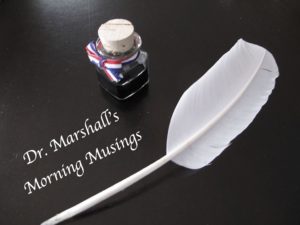Deciphering Our Teenager’s Declarations
Earlier this morning I was looking for an article about ADHD when I ran across a column with the title, “Aiming to Decipher My Teen’s Transgender Declaration.” I decided to read the article, because we are experiencing a sudden and significant increase in teenagers declaring that they are gay, or bi, or trans. And this comes as a shock to most parents who assume that their children are going to follow the typical life path of college or career, marriage, and children.
Different parents react differently to this news bulletin. Uninvolved parents tend to ignore this as they ignore other things about their children. Authoritarian parents think they can maintain control and coerce their children into doing or being what they (the parents) want. As always, somewhere between these two extremes is some wisdom that we should be looking for.
Before you act (or overreact) keep in mind that the teen years is also the time when our children declare that they are atheists, or vegetarians, or vegans. That they want to be home-schooled, or not schooled, or—you get the picture. Teenagers have always sought to separate from their parents. Adolescence is the time when our children begin to leave the nest. Some leave early, quickly, and with much fanfare; others leave slowly and quietly.
And they use whatever they can to be different from their parents. Some seek huge differences (announcing they are an atheist or that they are gay), while others are satisfied with more subtle differences (quitting an activity they have been doing since childhood). Like any declaration of independence, some are easy and some are bloody. Regardless of which one you’re dealing with, the advice remains the same: PROCEED WITH CAUTION.
At the age of declaration, neither we nor our children know how this is going to turn out. Some who announce that they are gay will remain so; for others it will be another phase, not unimportant, just not permanent. Whichever it is, parents are in no position to make the decision for them. Those days are gone. What you can do is withhold approval of permanent changes (surgery) and discourage ostentatious, attention-seeking displays. We don’t flaunt our heterosexuality, so there is no reason to flaunt our homosexuality. If you are gay, you are gay. The world will know without an ad campaign; and your grandparents may or may not need to know, so spare them. It’s okay to be gay, but it’s also important to be considerate.
The greater the consequences the greater the stress. Hearing that your teen is a vegetarian produces a small, almost amusing blip on the family landscape. Hearing that your teen is sexually active produces another level of family tension. Hearing that your child is gay or trans is far more consequential, so it produces a higher stress level. Regardless of your stress level, however, this is no time to issue ultimatums or to enact prohibitions that you can’t enforce.
Remember, we don’t know how this is going to turn out. If your child eventually determines that she is gay, you have respected who she is. If not, you have been patient while she was making this critical decision. Either way, you will have her undying gratitude and she is likely to pass on your wisdom to others.

About the author